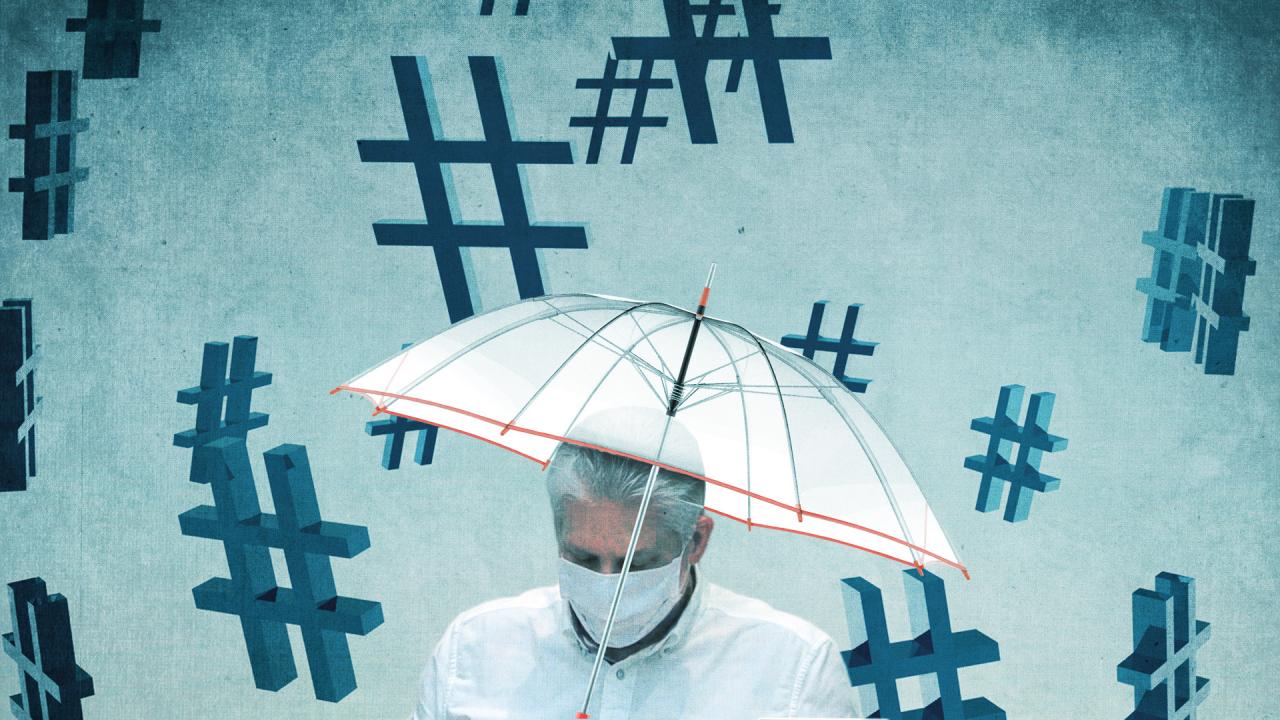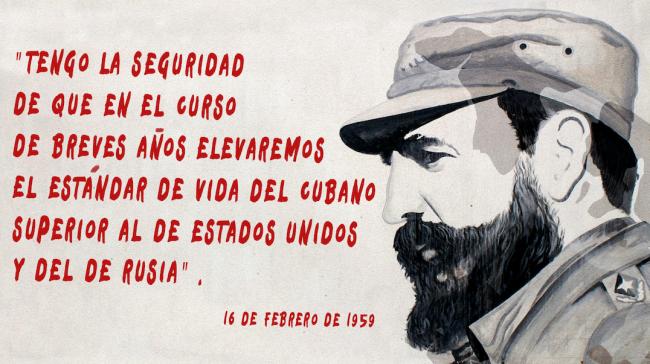"With regards to the rumors circulating on social media about the alleged commencement of monetary unification as of October 1, 2020, the Central Bank of Cuba hereby clarifies that this information is not true." Thus began the official memorandum issued by the banking institution, which last week moved to deny the umpteenth rumor about a government measure that Cubans dread.
These kinds of denials and clarifications are increasingly common, given the habitual opacity and sluggishness with which matters of great public sensitivity are disclosed through the "official channels" on the island. The spread of the Internet into Cubans' homes and mobile phones constitutes an unresolved challenge for this mechanism, as citizens publicize events and initiate discussions at speeds that were formerly unthinkable.
The new scenario took on its most stark manifestation in 2018 when Miguel Díaz-Canel began to insist that high-ranking officials in his government appear on social media as this, he said, was in the interest of a "more efficient public administration" in Cuba.
But, with regards to the administration of public information, this "electronic government" has turned the top-down formula Cuba inherited from the Soviet Union on its head. With it also came a kind of "accountability assembly" conducting surveillance that is proving to a be an increasingly painful thorn in officials’ sides.
Today, the social networks are forums where, for the first time in Cuban history, citizens have an instrument for condemnation, critical commentary, rectification and condemnation.
The Cuban authorities' level of exposure to this has given rise to events such as the correction that Díaz-Canel himself had to issue in August, after erroneously announcing on his Twitter page that: "The US has suspended all charter flights: a measure to further isolate Cuban families" in the wake of a new sanction levied by Washington on Havana.
The error did not go unnoticed by Cubans on the networks. "Enough of the lies and misinformation. The US suspended only private charters, which do not affect families at all. They are used by politicians, officials, businessmen and artists who can afford to avoid normal flights. It only affects people like you," Pedro Pérez snapped on the page’s forum.
Taoro added: "You criticize the US's measures against your regime, but you are retaining the humanitarian aid sent by Cubans from Miami in the Port of Mariel, and keeping this aid from reaching the Cubans who need it. You are a hypocrite and a cynic."
"In the face of hostile rhetoric from the US, you continue to sell food and basic necessities to the people in dollars, at a 300% profit margin," he added.
Mariela Castro, a "victim" of social media
Although most officials and their network administrators tend to ignore these and other comments, and prefer to just post rather than engage in conversations, in some cases the criticisms have had on an impact on their audiences.
Mariela Castro, Director of the National Center for Sex Education (CENESEX), perhaps one of the most criticized Cuban officials, went so far as to call "trained hyenas", "worms" and "traitors" the many people who criticized her for a set of controversial tweets she emitted regarding the celebration of the Day of the Virgen de la Caridad del Cobre, Patron Saint of Cuba.
Following the criticisms she received, regime official Iroel Sánchez described the attacks against Raúl Castro's daughter as "hateful bullying paid for out of Miami," while followers of Mariela and official spokesmen went so far as to launch the hashtag #YoApoyoAMariela (#ISupportMariela) to show their support for the Cuban deputy.
This brief clash revealed how exposed Havana officials are to the virtual assembly. Accustomed to impunity, and the criminalization of critical voices, scrutiny now finds them fragile and devoid of arguments.
But this scrutiny goes beyond isolated criticisms and even extends to the creation of collective initiatives whose aim is to denounce the regime. At the end of August one of them seized upon complaints voiced in Havana about Google's temporary blockage of the YouTube accounts of various official media, to launch the hashtag #CubaMeBloquea (#CubaBlocksMe) which was promoted on Twitter to condemn regime officials’ censorship of network users, accompanying it with screenshots of the blockage alerts.
This kind of initiative dates back to 2019, when the Inventory Project, with the hashtag #InventariarBloqueo (#InventoryBlockage), began documenting complaints against officials who censor citizens. In this first stage it posted dozens of cases of this nature on its Twitter page.
A recent trend that is picking up steam is the use of "parody accounts," which employ humor to ridicule Cuban officials and their solemnity.
DIARIO DE CUBA searched Twitter and found at least 14 parody accounts of this nature, whose main targets are ministers and senior officials: Manuel Marrero, Alejandro Gil Fernández, Fernando Rojas and Abel Prieto, among others, have parody avatars.
But the G2 also has a parody profile: "The objective of this account is to show the world how repulsive this repressive Castro political apparatus is; you can insult it, and I will respond as they would," says the tweet posted on the account @esbirrosdecastr, one of the many going after the Government.

